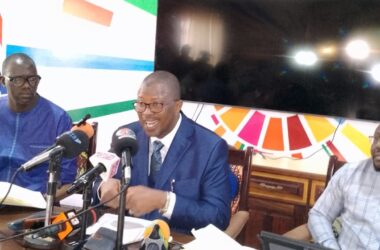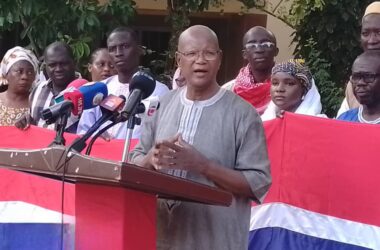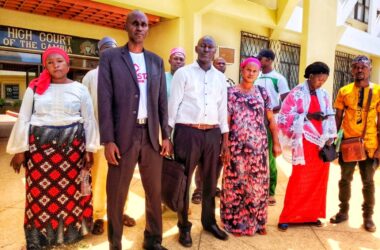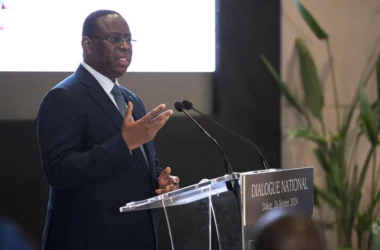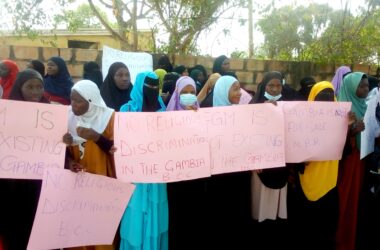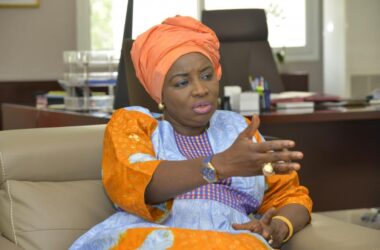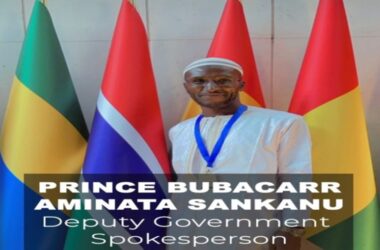By Kemo Cham
The Gambian government has expelled the country representative of the United Nations Children Fund (UNICEF) to the Gambia, Min Whee-Kang. An executive order served to the UN diplomat in the form of a letter officially declared her persona non grata, last Friday, and she was given just 72 hrs to leave the country. Sources told Jollof News that Mrs Kan left Banjul for Dakar by road, the following Saturday.
Confirming the story, UNICEF communication specialist in Gambia, Sally Sadie-Singhateh, told Jollofnews.com that “UNICEF received a letter last week from the government stating that the Country Rep., Ms Min-Whee Kang, was no longer welcomed in The Gambia.’’
Mrs Sadie-Singhateh went on to say that no reason was given to justify such a decision.
An unidentified official at UNICEF’s Regional Office in neighbouring Senegal confirmed that the expelled Gambia representative of the UN children’s agency was indeed in Dakar. ‘‘It is true, she is here,’’ the official, who could not elaborate further, told Jollof News.
This is the third time the Gambian government under President Yahya Jammeh is expelling a high profile foreign representative from the country, and it is the second time for a UN official to be asked out of the country unceremoniously.
In February 2007, UNDP residence representative, Zimbabwean Ms Fadzai Gwaradzimba, was declared persona non grata following a comment about President Yahya Jammeh’s controversial HIV/AIDS treatment program. Earlier in 2001, former deputy British High Commissioner in Banjul, Bharat Joshi, was told his presence in the country was “against the national interest of The Gambia and intolerable”. He was given 72 hours to leave.
Efforts to get the official version of the Gambia government’s latest expulsion order were rendered futile by the culture of opacity that prevails in the country. The Gambia government has an unwritten policy of not talking to the press despite the constitution guaranteeing free flow of information.
UNICEF Gambia is among bodies that submitted reports to the 7th session of United Nations Human Rights Council’s Universal Periodic Review in the Swiss capital of Geneva. While the agency’s report to the UPR on the Gambia couldn’t be said to be totally different from the rest of the independently submitted reports, like all others UNICEF made critically mild observations on the contentious human rights situation in the country.
‘‘Although the government has recognized that improved political governance is essential for poverty reduction, actions in this area have been mixed,’’ the report said. ‘‘.. … advances on the legislative front have been offset by a number of violations in the areas of human rights, most notably those concerning freedom of the press.’’
The UN children’s agency report to the UPR also touched on the prevalence of HIV/AIDS, a subject that has become more or less a taboo in Gambia, after President Yahya Jammeh announced a divine order for him to commence its treatment.
Just last Tuesday 9th February, 2010, the Gambia leader recommenced his controversial treatment program, after inviting what he called the sixth batch of HIV/AIDS patients for registration.
Abdoulie John contributed to this article.
Warning: Trying to access array offset on value of type null in /srv/users/jollofnews/apps/jollofnews/public/wp-content/themes/wpzoom-prime-news/functions/widgets/carousel.php on line 39

